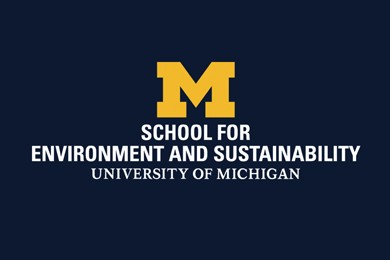The State of Climate Change and Climate Action, Local to Global
 Open to Everyone
Open to Everyone
Hear Professor Jonathan Overpeck, Dean of the School for Environment and Sustainability at the University of Michigan (SEAS), discuss the state of climate change and climate action in the present political environment. Climate change and its impacts are accelerating, driven by amplifying “feedbacks” in the climate system, as well as increased exposure of humans and their infrastructure to climate change extremes. Recent estimates suggest the current economic impact of climate change could be as large as 1% of global GDP, and there is no doubt the size of this impact is growing. The Earth’s climate system is also being pushed towards several irreversible tipping points that could prove particularly dangerous. Climate change-related impacts on human health and welfare, as well as natural systems, are also growing more generally in both the US and around the globe.
Efforts to slow and eventually stop climate change are also accelerating around the planet, as are efforts to adapt to the climate change that is already happening and likely cannot be avoided in the future. At least in the near-term, future climate change impacts will only increase. As bleak as the situation may appear, there is hope. Outside the US, climate action is accelerating most rapidly, and this is leading to increasing innovation and reductions in the cost of climate action. In the US, climate action of the last several years has also been unprecedented. Unfortunately, the last six months have seen a rapid slowdown in climate action in the US. Again, there is reason for hope for several reasons, and these reasons will be discussed, as will ideas about what we can do to regain climate action momentum in Michigan and the US.
About the Speaker
Professor Jonathan Overpeck, Dean of the School for Environment and Sustainability at the University of Michigan (SEAS), has worked for over 40 years and on six continents to understand and halt climate change, as well as to promote efforts to adapt to the climate change that cannot be halted. He has written over 230 published works, including serving as a Coordinating Lead Author for the Nobel Prize winning IPCC 4th Assessment (2007). In addition, Overpeck serves on the State of Michigan Governor’s Council on Climate Solutions, as well as the City of Ann Arbor’s Sustainability Commission. He has appeared and testified before Congress multiple times
Organizers
School for Environment and Sustainability (SEAS)

